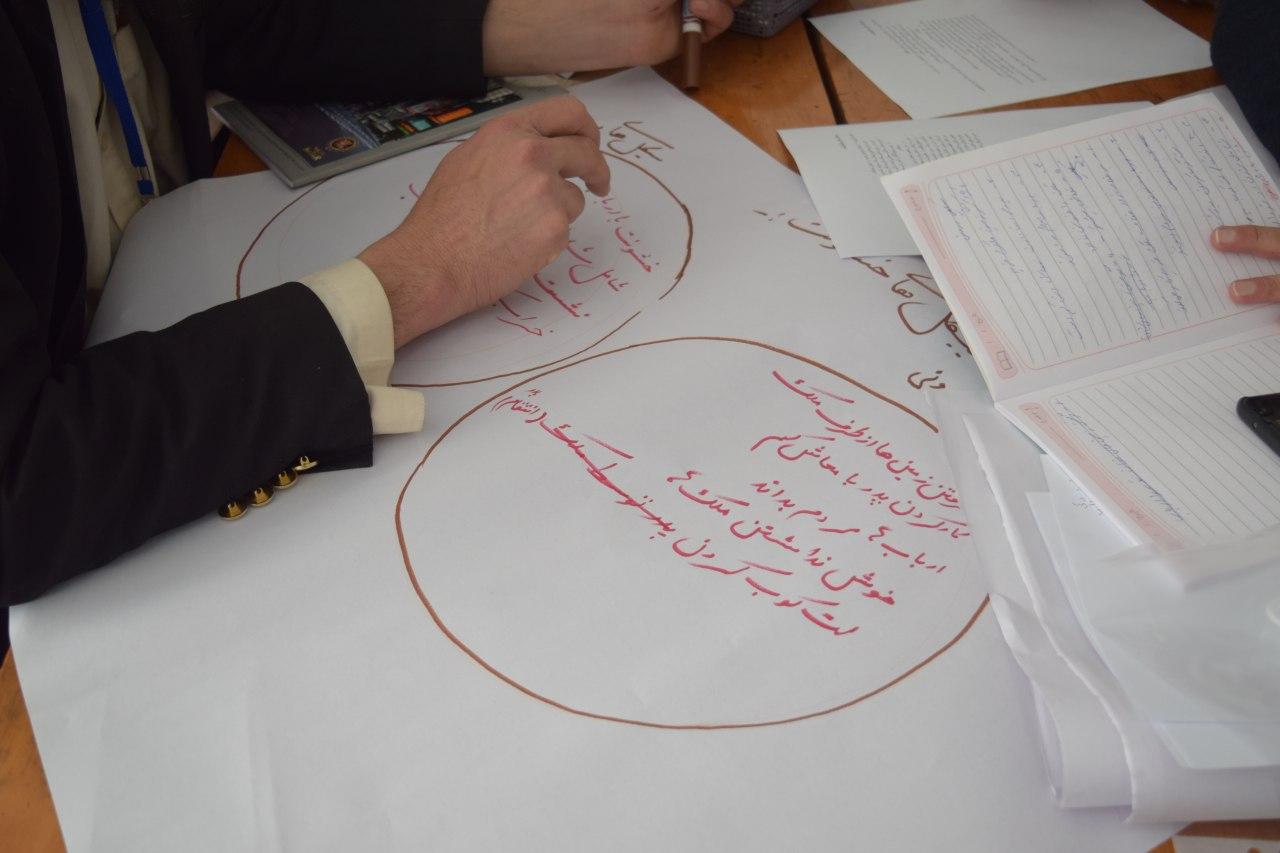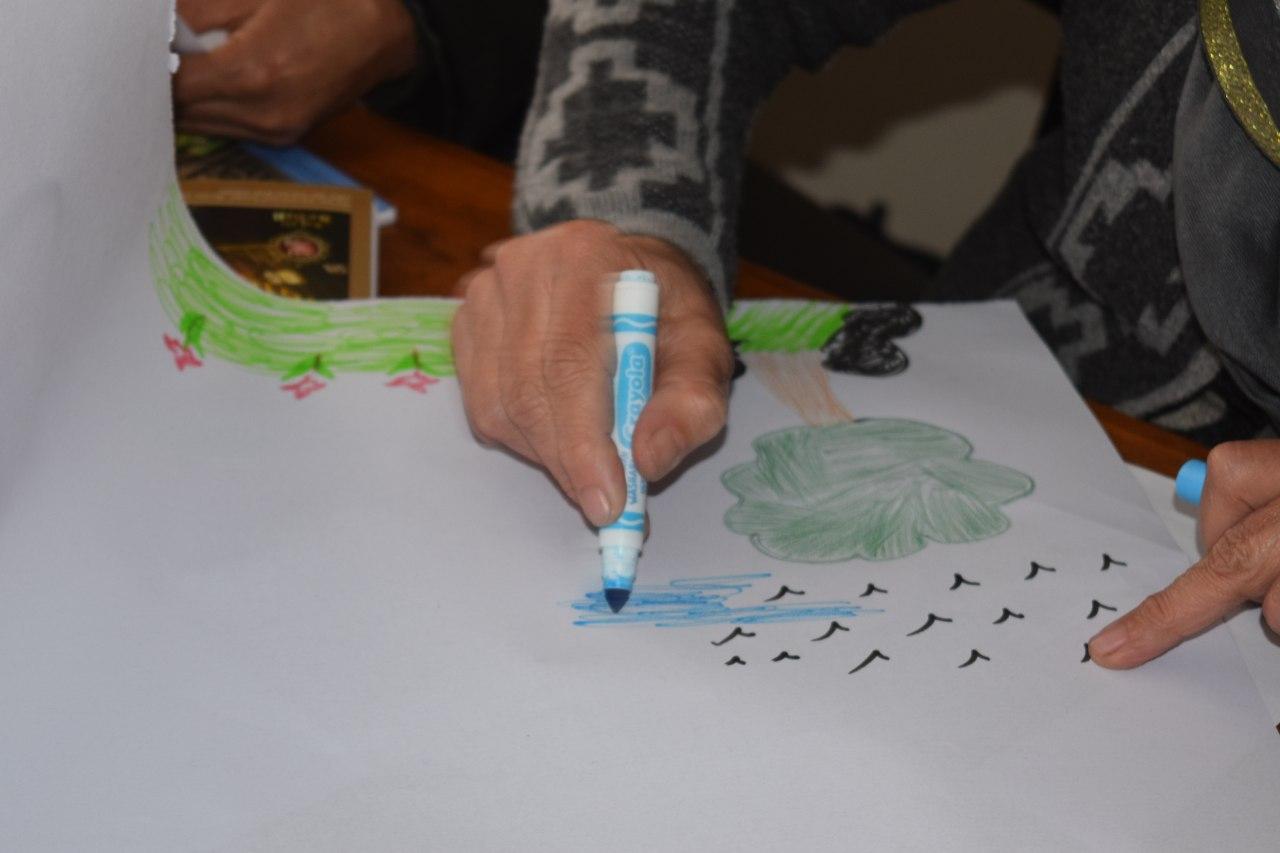How we can permanently end 40 years’ war and violence in Afghanistan?
It’s a question that isn’t easy to answer – but at IAM, we believe that big changes can start in small ways, like equipping individuals with the skills to address daily issues and conflicts in less harmful ways and become peacebuilders in their families and communities. Skills like these will help people to build a nonviolent environment, which will eventually lead to peace. That is what our Peacebuilding Project is all about.
IAM’s Peacebuilding Project aims to establish a culture of reconciliation and resilience through training teachers and students in schools and universities. We believe that peacebuilding skills can play a big part in the lives of future generations and contribute to nonviolent communities. “I am personally using conflict resolution skill in my personal and professional life.” Monera*, who teaches in a school in Kabul, says. Having a nonviolent community means having long lasting peace.

Group working in one of Peacebuilding training
Before beginning work in schools and universities, the Peacebuilding Project was initiated for training IAM’s Community Development Projects’ staff in Do No Harm” principles, conflict resolution skills, conflict management and respectful decision making. “In 2012 we started this project to bring more cooperation among staff as they delivered services to the people,” Rahman*, IAM’s Peacebuilding Project Manager, says. “Before 2012, sometimes our staff were spending a lot of time in decision making, usually because of different and even opposing views”. In its first stages, the Peacebuilding Project aimed to help IAM’s staff to increase their productivity by using Do No Harm principles, communication skills making quick, unified decisions. Peacebuilding skills trainings were very effective in bringing unity during decision making. IAM staff throughout the country benefited from these trainings, and now can deliver more efficient services to the people.
Since 2018, IAM’s Peacebuilding Project has been training teachers in schools and universities to equip future generations with conflict resolution and life skills. We want to train teachers in schools and universities about life skills and peacebuilding skills so that they will be able to transfer these skills to students in the future, resulting a long-lasting impact on the people. “As a teacher, I think these skills are very important for our people,” Monera says. “and should be included in our educational curriculum”. Monera is committed to training her students in these skills and taking a part in making a more resilient society.

One of the participants printing a tree and birds for showing a peaceful environment
Conflict in decision making is common because everyone wants to be dominant and control the conversation. Conflicts and disputes are reality of life, and they exist in everyone’s life, which means people have a basic understanding of how to deal with them. Through our training we help people to put their understanding in a standard method of peacebuilding. “Based on different surveys, individuals who participated in our training are 20 to 30 percent likely to change their negative behaviors like getting angry and using force on others” Rahman says. “Next year, we are going to train parents in peacebuilding skills in a selected community and help them to have a positive impact on their children.”
Since 2018, more than 3,000 people have directly benefited from our Peacebuilding Project, and we will continue striving to deliver its services through community participation going forward. IAM is committed to play a role in bringing long lasting positive change through training people on peacebuilding skills in Afghanistan.
Names changed*
For finding more information about our work click here!
Want to keep up with the latest from IAM? Like our Facebook page!